Elie Wiesel and the memory of the Holocaust
Elie Wiesel was one of the most vocal activists for keeping alive the memory of the Holocaust.
Warning: Trying to access array offset on null in /home/web/rri.ro/public/wp-content/themes/rri/template-parts/content.php on line 53

Warning: Trying to access array offset on null in /home/web/rri.ro/public/wp-content/themes/rri/template-parts/content.php on line 98
Steliu Lambru,
11.07.2016, 11:54
Elie Wiesel was born on 30 September 1928 in
the Romanian town of Sighetu Marmatiei, and passed away on 2 July 2016 in New
York. He was one of the best known and most vocal activists for keeping alive
the memory of the Holocaust, that claimed the lives of around 6 million
European Jews, 400,000 of them in Romania or Romanian administered territories,
between 1941 and 1944. At the time of his deportation to Northern Transylvania
in May 1944, his native town was a Romanian territory annexed by Hungary
through the Vienna Award of August 30, 1940. He was 15 years old when he was
sent to Auschwitz together with his parents and his three sisters. In April
1944, the camp he was in was liberated, but only he and two of his sisters
survived the ordeal.
Elie Wiesel’s book of memoirs called Night,
translated into 30 different languages, tells the story of the time spent in
Nazi death camps. He was awarded the Nobel Peace Prize in 1986, in recognition
of a lifetime spent fighting against genocidal policies and regimes around the
world. He talked to the world about his suffering and that of the Jewish people
during WWII, so that such things would never occur again. He left behind a
legacy of civic spirit and the everlasting ideals of tolerance and respect for
diversity. Alexandru Florian, the head of the National Institute for the Study
of the Holocaust in Romania that bears Wiesel’s name, said that his passing is
a great loss for humanity:
I think it’s a huge loss. And if in 1986, when
the received the Nobel Peace Prize, he was described as ‘a messenger to
mankind’, today I believe we are not wrong in saying that this is a huge loss
for mankind. He practically dedicated his entire life after the Holocaust
keeping alive the memory of the Holocaust, and so that people, no matter where
they live on this planet, can have rights and freedoms. He fought a balanced,
consistent and tireless fight to keep alive the memory of the Holocaust so that
each and every one of us understands that what happened to the Jews in WWII was
a murderous tragedy that should never be repeated. At the same time, he was
involved in the condemnation of the great genocides such as that in Rwanda. For
human rights militants, for each and every one of us, Wiesel’s death is a great
loss.
We asked Alexandru Florian about the symbolic
force of Wiesel’s legacy:
For any normal and rational human being, Elie
Wiesel represented something important. On the other hand, for people who plan
or participate in exterminations or crimes against humanity, Elie Wiesel’s life
is nothing but a barrier in the way of their criminal intentions. For such
creatures, for I could not refer to them as human, Elie Wiesel did not even
exist, they do not want people such as him to exist. I can recall cases in
Romania when Elie Wiesel was accused of not being a survivor of the Holocaust,
and of propaganda perpetrated by Holocaust deniers aimed at disqualifying and
downplaying his actions.
Anyone who has ever suffered, everyone who
loves tolerance and understanding, want humanity to learn from history. We
asked Alexandru Florian if the Holocaust could ever be repeated:
Just as in politics you should never say
never, or say that something may be impossible, I cannot say that it could
never happen again, I would not make a pronouncement on that. I believe,
however, that it is very difficult for us to see once again such a destruction
of a group of population as a result of policies as the ones perpetrated during
WWII. I believe that Elie Wiesel’s public and civic activity played a role in
this respect. A role was also played by those few European politicians and the
people after WWII who showed rationality, humanity and restraint, even when faced
with the possibility of conflict. I believe that disasters such as those during
the war are not impossible, but there are small chances for them to occur
again. Let us not forget that we have had 70 years of peace on the European
continent, even if some countries have had civil wars or conflicts.
We asked Alexandru Florian about the personal
meeting he had with Elie Wiesel in 2004:
I met him at the 2003-2004 meeting of the
International Commission for the Study of the Holocaust in Romania. He was the
head of the commission, I was a member. I listened to his speech in Bucharest
at the conclusion of the meeting, when he handed the report to then president
Ion Iliescu. On that occasion, I had the opportunity to meet Elie Wiesel and
exchange a few words with him. Now that he is no longer with us, I remember
fondly how impressed I was by the balance, the warmth, the humanity that
emanated from him. At the same time, I was impressed by the determination with
which he acted to keep alive the memory of the Holocaust and to prevent
murderous politicians such as those from WWII from taking power anywhere in the
world.
The world is worse off without
Elie Wiesel, but hopefully the future will not repeat the mistakes of the past,
in part thanks to him.






























